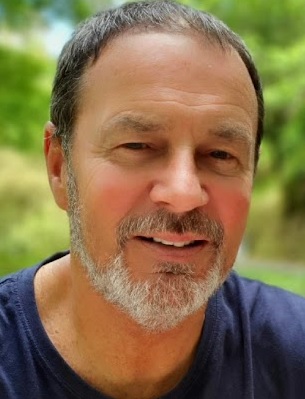
The United States presidential elections put one in mind of watching WWTF mud wrestling between a rather thin, grey-haired undertaker and a fat naked man covered in hideous green slime.
The thin undertaker intones, over-and-over, the hope that it will be a fair fight while the fat naked guy attacks the referee and wants him to help smash the other guy, while holding a Bible and shouting expletives and abuse at everyone.
In the end, the judges and the crowd were split. The win for the undertaker might quieten things down, but the fat fella – boy, could he make it exciting, and the crowd is in a frenzy.
Down here in little old Aotearoa, things seem a bit more sedate. We’ve had our election, where the most outrageous thing was Judith Collins’ attempt to smear the prime minister by constantly calling her “Miss Ardern.” That’s hardly something that had shopkeepers boarding up windows to protect against crazed rioters.
The spectacle in the US might seem rather amusing, to some, until one considers how serious it is. And I don’t just mean the consequences of Trumpism on the world’s largest economy and, by extension, on the rest of us.
I’m talking about many of the underlying forces at work, that marginalise swathes of people and put the power increasingly into the hands of few.
While in New Zealand we can pat ourselves on the back about the civility of our social and political life, the aforementioned forces are global and we are not immune.
Much is being written and discussed around the world, especially as we face the realities of populist politics, which I would define as political and social movements that seek a cult-like following based solely on what will appeal to certain sections of voters. A key factor is the maligning of “other” sectors of society, which is supported by the inebriated use of claims and information that simply aren’t true.
Of course, there are some who claim it is simply democracy at work.
If a movement appeals to enough people, what’s wrong with that? But, if the spread of misinformation is how it happens, and the movement is only using democracy with the ultimate goal of creating an authoritarian regime, then democracy (people power) ends up being the casualty, along with truth.
A big danger in all this is that people become polarised and stop listening and talking together.
As always, the victims are people on the margins; for example, minorities, the poor and people with disabilities.
In the US, we’ve seen how black Americans have suffered at the hands of the Trump-inspired white supremacy movement. So, I was not surprised to recently see, on a US news story, a black activist say, “we need to get back to empowering people.”
So, here’s the key point. If people don’t feel empowered and seek out demigods peddling misinformation and polarisation, we surely need to look for ways to empower people more and connect them up so that we can have healthier and richer conversations, than are often happening in the unlit dungeons of Facebook and Twitter.
Our government has said, following our election, that they wish to govern for all New Zealanders. If they are serious about that, they will need to find ways to do more than just ‘govern – they’ll need to find more ways to empower all people and groups.
This isn’t easy when most of the mechanisms of government flow through ministries and agencies that provide top-down driven resources and services, but jealously guard the levers and flows of money, and power. Risk, rather than reward, is a big motivation and empowering any kind of self-determination is just a tad foreign.
Let’s just hope we do not see the emergence of a Donald Trump in New Zealand. We can create the kind of community environment we all crave, and make certain Trumpism never happens here, if we are serious about empowering the people who need it most.
 You can contact Fraser here.
You can contact Fraser here.
Fraser Carson is the founding partner of Wellington-based Flightdec.com. Flightdec’s kaupapa is to challenge the status quo of the internet to give access to more reliable and valuable citizen generated content, and to improve connectivity and collaboration.
Flightdec websites include: KnowThis.nz, Issues.co.nz and Inhub.org.nz.
OTHER POSTS
LATEST POSTS
- Carl Lutz – farmer who loved the land, and Fordsons
- Arthur saw nature ‘with eyes of admiration’
- Ōtaki abuzz with film festival - Ōtaki Today
- Hall helps to connect and build community
- Fear breeding fear, fear and more fear
- Plenty of help organisations in times of need
- Poor official communications fuel misinformation
- Cultural infrastructure could be our saviour
- Four-storey blocks coming as developments fast-tracked
- The world’s therapist offers little hope for global ills
- Modern conservatism the quiet killer
- Di’s QSM for services to community and environment
- However bad it might get, keep smiling
- AI is coming, ready or not
- Rewi’s story one of adversity in old Ōtaki
- Arise King Brown of the Kingdom of Auckland
- Rebuilding should draw on mātauranga
- Urban designer poses critical question - What’s the plan for Ōtaki?
- Brown hits the fan as water levels rise
- When small stuff becomes really big stuff
